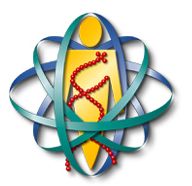Monte Carlo Damage Simulation (MCDS) Software
Robert D. Stewart, Ph.D.; Associate Professor of Medical Physics
School of Medicine, Department of Radiation Oncology, 1959 NE Pacific Street, Seattle, WA 98195
About the MCDS Version 2.01 (2006)
The passage of ionizing radiation through living organisms initiates physical and chemical processes that create clusters of damaged nucleotides within one or two turns of the DNA. These clusters are widely considered an important initiating event for the induction of other biological endpoints, including cell killing and neoplastic transformation. The fast Monte Carlo damage simulation (MCDS) algorithm provides a very fast quasi-phenomenological method to interpolate damage yields from computationally expensive, but more detailed, track-structure simulations. The MCDS provides information about the overall yield of SSB, DSB and sites of multiple base damage for electrons, protons and alpha particles with energies as high as ~ 1 GeV. The MCDS also provides information about the predicted characteristics of various classes of DNA damage, such as the average number of lesions per DNA damage cluster and the average cluster length in base pairs.
 Research supported in part by the Office of
Science (BER), U.S. Department of Energy, Grant Nos. DE-FG02-03ER63541 and
DE-FG02-03ER63665. Science in Support of Radiation Risk Policy.
Research supported in part by the Office of
Science (BER), U.S. Department of Energy, Grant Nos. DE-FG02-03ER63541 and
DE-FG02-03ER63665. Science in Support of Radiation Risk Policy.
Last updated:
January 14, 2013
Contact
Webmaster